H. Timothy Bunnell
Extracting Post-Acute Sequelae of SARS-CoV-2 Infection Symptoms from Clinical Notes via Hybrid Natural Language Processing
Aug 17, 2025Abstract:Accurately and efficiently diagnosing Post-Acute Sequelae of COVID-19 (PASC) remains challenging due to its myriad symptoms that evolve over long- and variable-time intervals. To address this issue, we developed a hybrid natural language processing pipeline that integrates rule-based named entity recognition with BERT-based assertion detection modules for PASC-symptom extraction and assertion detection from clinical notes. We developed a comprehensive PASC lexicon with clinical specialists. From 11 health systems of the RECOVER initiative network across the U.S., we curated 160 intake progress notes for model development and evaluation, and collected 47,654 progress notes for a population-level prevalence study. We achieved an average F1 score of 0.82 in one-site internal validation and 0.76 in 10-site external validation for assertion detection. Our pipeline processed each note at $2.448\pm 0.812$ seconds on average. Spearman correlation tests showed $\rho >0.83$ for positive mentions and $\rho >0.72$ for negative ones, both with $P <0.0001$. These demonstrate the effectiveness and efficiency of our models and their potential for improving PASC diagnosis.
An Interoperable Machine Learning Pipeline for Pediatric Obesity Risk Estimation
Dec 12, 2024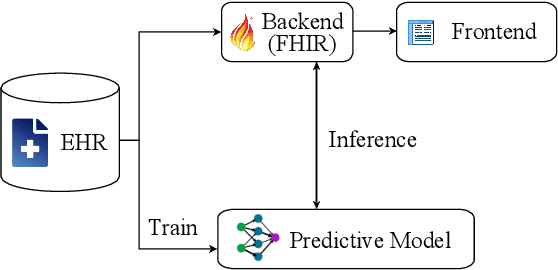
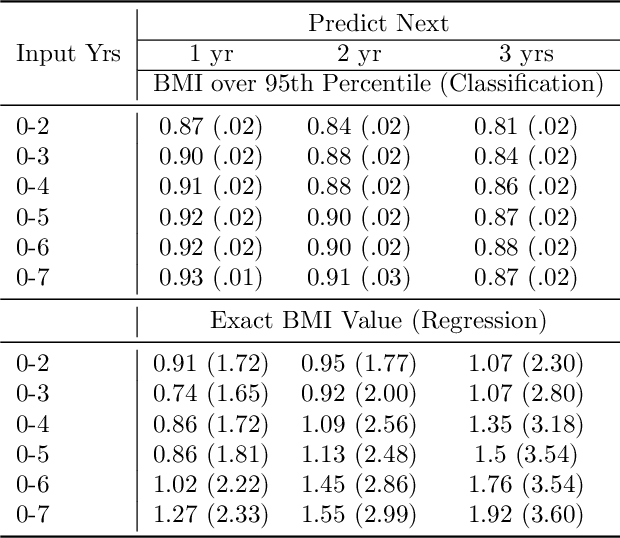
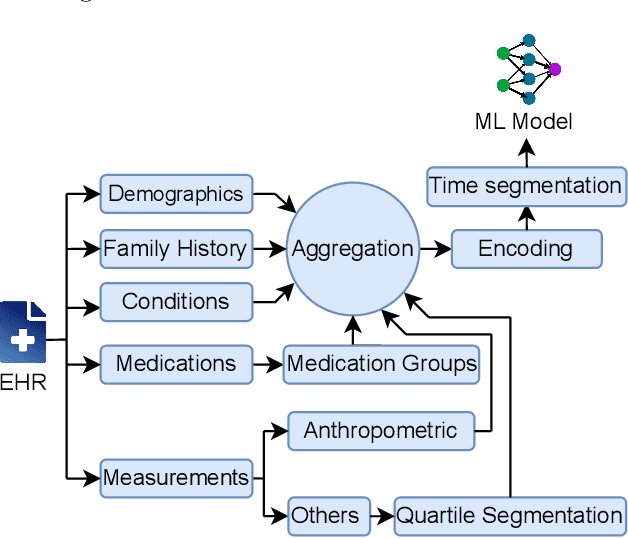
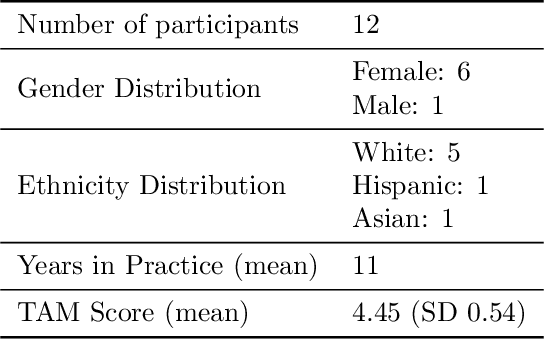
Abstract:Reliable prediction of pediatric obesity can offer a valuable resource to providers, helping them engage in timely preventive interventions before the disease is established. Many efforts have been made to develop ML-based predictive models of obesity, and some studies have reported high predictive performances. However, no commonly used clinical decision support tool based on existing ML models currently exists. This study presents a novel end-to-end pipeline specifically designed for pediatric obesity prediction, which supports the entire process of data extraction, inference, and communication via an API or a user interface. While focusing only on routinely recorded data in pediatric electronic health records (EHRs), our pipeline uses a diverse expert-curated list of medical concepts to predict the 1-3 years risk of developing obesity. Furthermore, by using the Fast Healthcare Interoperability Resources (FHIR) standard in our design procedure, we specifically target facilitating low-effort integration of our pipeline with different EHR systems. In our experiments, we report the effectiveness of the predictive model as well as its alignment with the feedback from various stakeholders, including ML scientists, providers, health IT personnel, health administration representatives, and patient group representatives.
Who will Leave a Pediatric Weight Management Program and When? -- A machine learning approach for predicting attrition patterns
Feb 13, 2022
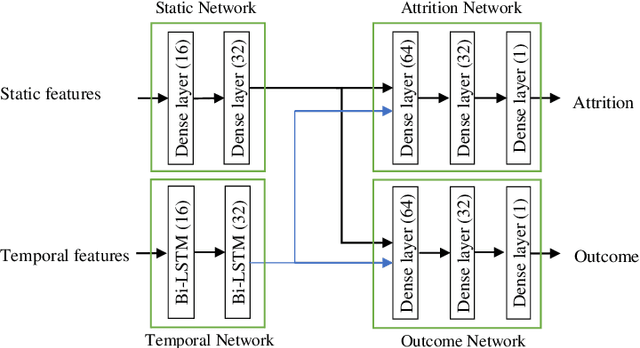

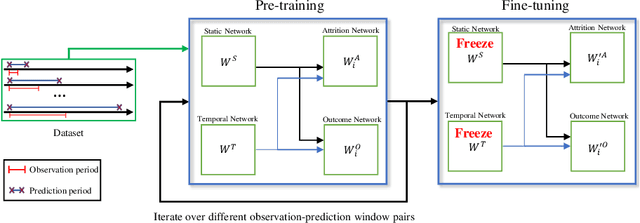
Abstract:Childhood obesity is a major public health concern. Multidisciplinary pediatric weight management programs are considered standard treatment for children with obesity and severe obesity who are not able to be successfully managed in the primary care setting; however, high drop-out rates (referred to as attrition) are a major hurdle in delivering successful interventions. Predicting attrition patterns can help providers reduce the attrition rates. Previous work has mainly focused on finding static predictors of attrition using statistical analysis methods. In this study, we present a machine learning model to predict (a) the likelihood of attrition, and (b) the change in body-mass index (BMI) percentile of children, at different time points after joining a weight management program. We use a five-year dataset containing the information related to around 4,550 children that we have compiled using data from the Nemours Pediatric Weight Management program. Our models show strong prediction performance as determined by high AUROC scores across different tasks (average AUROC of 0.75 for predicting attrition, and 0.73 for predicting weight outcomes). Additionally, we report the top features predicting attrition and weight outcomes in a series of explanatory experiments.
 Add to Chrome
Add to Chrome Add to Firefox
Add to Firefox Add to Edge
Add to Edge